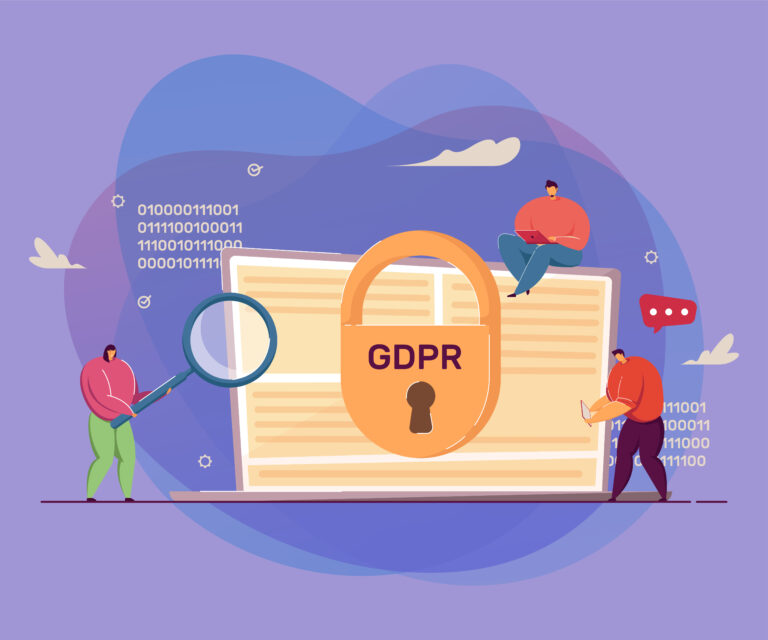Cybercrimes have grown in scope alongside the development of technology and the internet.
Businesses and organisations of all sizes may now be safeguarded against contemporary cyber threats thanks to the advantages of cybersecurity. This may cause businesses’ financial, business, and customer data to vanish in an instant.
Businesses operate on several dimensions. These procedures may include secret communications, marketing campaigns, round-the-clock client assistance, and data generation without restriction. There may be unknown circumstances as a result of this data diffusion.
An international data breach typically costs $3.86 million to repair.
Cybersecurity refers to defending systems, assets, and data that are online against online risks such as unauthorised third parties accessing data belonging to an entity. These unauthorised parties may include criminals, hackers, and corporate spies.
Cybersecurity is crucial since it guards against the theft and destruction of many types of data. This comprises delicate information, personally identifiable information (PII), protected health information (PHI), personal data, data about intellectual property, and information systems used by the government and businesses. Your company cannot protect itself against data breach operations without a cybersecurity program, making it an unavoidable target for cybercriminals.
Maintaining data integrity, security, and confidentiality is also crucial to cybersecurity.
Some components of cyber security include:
- Software Security
- Cloud Safety
- Data Protection
- Identity Control
- Mobile Protection
- Network Protection
- Occupational Safety
- Endpoint Protection
Cybersecurity: What is it?
Cybersecurity is the practise of defending against and recovering from cyberattacks on computer systems, networks, devices, and software. Your sensitive data is at risk from increasingly complex and changing cyber assaults, which use new techniques driven by social engineering and artificial intelligence (AI) to get through conventional data protection measures.
The world is becoming more and more dependent on technology, and this dependence will only increase as we develop new technologies that will link to our connected gadgets via Bluetooth and Wi-Fi in the future.
Intelligent cloud security solutions should be used in conjunction with strict password guidelines like multi-factor authentication to reduce illegal access to secure client data while embracing new technologies.
The Significance of Cybersecurity
The significance of cybersecurity is growing. Fundamentally, there is no indication that the technological dependence of our society will decrease. Identity theft-related data dumps are now openly announced on social media sites. Cloud storage services like Dropbox and Google Drive are now used to store private data, including social security numbers, credit card numbers, and bank account information.
The truth is that everyone uses computer systems daily, whether they are individuals, small businesses, or giant multinationals. We now have a wide range of possible security risks that were not present a few decades ago when we combine this with the growth in cloud services, lax cloud service security, smartphones, and the Internet of Things (IoT).
Even though the two fields’ skill sets are becoming more comparable, we still need to recognise the distinction between cybersecurity and information security.
The benefits of cybersecurity are as follows:
- Protection of personal data
The most important resource for companies or individual consumers is personal data. The boundaries of privacy have nonetheless been eroded by digital applications. A virus can gather private data, putting the privacy of consumers, clients, or workers at risk.
Cybersecurity may also defend against internal risks, whether they are unintentional or purposeful. An ex-employee, a third-party vendor, or a reliable partner might complete this. Employees can access the internet whenever they need to without fear of a data leak because of cybersecurity. However, such threats may be avoided with regular monitoring.
- Protects the reputation of the company
Strengthening brand loyalty may help improve customer retention, a crucial business issue. The threat caused by data breaches to business reputation is the greatest. While the whole market seeks to gain customers’ trust, cybersecurity problems might cause a business to lag. This connection of trust may be weakened by a data leak.
Consequently, a security system can prevent unplanned setbacks. Authentication may be strengthened by technologies like network security and cloud security. This may pave the way for the next projects, suggestions, and growth.
- Improves Productivity
As technology advances, fraudsters find new ways to attack data, increasing the risk of a data breach. Viruses may hurt networks, operations, and processes, which lowers productivity. As a result, the company will experience downtime, which will bring the operation to a halt.
One of the biggest potential benefits of cybersecurity is the ability to increase productivity for businesses through virus scanning, enhanced firewalls, and automatic backups. To maintain maximum productivity, workers should be informed about email phishing, scams, dubious links, and other questionable activity. This lowers infractions and downtime.
- Facilitates remote work
Businesses now have access to a variety of remote models for their operations thanks to the remote working model. Teams must, however, agree if they are to operate remotely.
The average cost of a data breach has grown by $137,000 due to remote employment, making it crucial for organisations to secure sensitive data. No matter how unwinding it may be for workers, it could be disconcerting for businesses to send their important data around the world without putting in place a cybersecurity architecture. These dangers may go unreported while disguising themselves as distant tasks until well after the fact.
IoT, Wi-Fi, and personal gadgets are all potential entry points for these cybercrimes.
Analytics, plans, and sensitive data are constantly vulnerable to hacking and leaks. However, cyber security can shield residential Wi-Fi from user data tracking and act as a safe repository for information.
- Improved data management
The foundation of both goods and marketing strategies is data. A last-minute meltdown may force businesses to start from scratch. Because of this, businesses need to constantly check their data to make sure data security laws are being followed to the letter.
Cybersecurity may help with operational efficiency in addition to security.
Data breaches can also cost a company a lot of money and effort. Instead, the cost of cybersecurity training and security measures may be worthwhile.
The research found that it takes 280 days to find and stop a cyberattack, which can halt an organization’s expansion and give it a lot of time to get back on track. Furthermore, these threats may be expensive.
- Maintains credibility and trust.
Increasing viewers’ confidence and credibility is one important benefit of cyber security. An audience base might drastically decrease with the slightest move. Due to this, firms risk losing valued clients.
Instead, when the company has a track record of safeguarding client and company data, the customer base will grow. Customers are becoming more aware of data fraud, so data security is important to them. In addition to the value of the data, they are aware of the consequences of its misuse.
Long-term client connections are notably well performed by businesses with sound data privacy policies. While using sound data procedures gives customers the confidence to interact with the company.
Key Takeaways from Cybersecurity’s Benefits
Businesses can keep an eye on their cyber security with the aid of effective implementation and risk management. A cyber security audit can assist businesses in finding possible gaps and uncovering flaws and vulnerabilities to ensure this. Enterprises must then take strategic action after recognising the problems.
Increasing cybersecurity knowledge is essential to reducing the risks that might result in data breaches. Stakeholders, workers, and clients of a business gain trust as a result of safer practises and increased awareness. This raises awareness of security methods, suggested procedures, applications, and technology.




